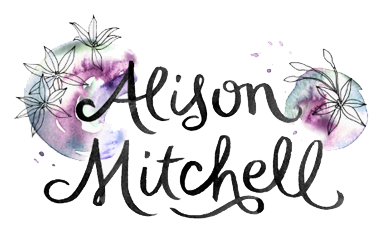How a Neurodivergent-Affirming Naturopath Supports ADHD – Addressing the root causes of ADHD symptoms
If you’ve ever felt like the conventional way ADHD is talked about doesn’t quite sit right with you—you’re not alone. At my clinic, we take a neurodivergent-affirming approach, which means we don’t view ADHD as something “wrong” that needs to be fixed. Instead, we recognise it as a different way of thinking, feeling, and being in the world—a neurotype that comes with its own strengths and challenges. (And sometimes a few extra browser tabs open in the brain at once.)
Being a neurodivergent-affirming naturopath means meeting people where they are—not trying to make them act more “neurotypical,” but helping them work with their brain, not against it. It’s about understanding the unique experiences of people of all ages with ADHD and working together to reduce overwhelm, improve wellbeing, and find practical ways to support the body and mind, while also recognising what drives the painful parts of ADHD to get worse.
Understanding the ADHD Brain
ADHD is often misunderstood as simply a problem with focus or restlessness, but it goes much deeper than that. At the heart of ADHD is a challenge with self-regulation—of attention, emotions, behaviour, and thoughts. For many, it’s not just hard to pay attention—it can also be hard to stop paying attention, especially when they’re hyperfocused on something interesting.
On a brain level, people with ADHD often have differences in the dopamine system, which affects motivation, reward, and the ability to get started on (or finish) tasks. There’s also increased activity in a part of the brain called the Default Mode Network, which is responsible for things like imagination, planning, and daydreaming. This can lead to creativity and out-of-the-box thinking, but also rumination and trouble switching gears into action.
Another key area impacted is executive functioning—the part of the brain responsible for planning, organisation, working memory, and impulse control. This can make tasks like remembering appointments, managing time, or staying on top of household chores feel incredibly overwhelming. What might seem simple to others—like starting a load of laundry or replying to a text—can require an enormous amount of mental energy. It’s not laziness or lack of motivation; it’s often a neurological bottleneck in translating intention into action.
This is why understanding the ADHD brain is so important. It helps us move away from judgment and toward compassion—for ourselves or the people we love who are navigating life with ADHD. When we know what’s going on beneath the surface, we can begin to tailor support strategies that are actually helpful, not just well-meaning.
What Makes ADHD Symptoms Worse?
While ADHD is something you’re born with, certain factors can make the symptoms more intense or harder to manage. These can vary from person to person, but here are some of the most common ones I see in clinic:
🔥 Systemic Inflammation
Inflammation in the body can impact brain health and increase ADHD symptoms. Causes might include:
-
Gut microbiome imbalances (your gut and brain are pen pals, basically)
-
Leaky gut
-
Nutritional deficiencies (especially omega-3s)
-
Stealth infections (the kind you don’t even know you’re hosting)
🥦 Nutritional Deficiencies
Our nutrient status has a wide reaching impact on many parts of out health and wellbeing. Deficiencies can cause certain biochemical processes such as neurotransmitter formation, immune decisions or hormonal messenging to go awry, which will definitely affect ADHD. Common culprits for worsening ADHD symptoms include low levels of:
-
Omega-3 fatty acids
- Protein
-
Zinc, magnesium, and iron
🌸 Hormonal Fluctuations
Hormones and ADHD have a very interesting relationship. Many women notice their symptoms flare up around perimenopause, postpartum, or throughout their cycle. If you’ve felt like your brain turns into a tumble dryer of emotions and forgetfulness at certain times of the month, it’s not your imagination—it’s hormones doing their thing. (I spoke about this in a reel not long ago).
🍬 Blood Sugar Imbalances
Ever get hangry and forget your own name at the same time? Blood sugar crashes can feel eerily similar to ADHD meltdowns, and also worsen the imbalances long term. Keeping things steady helps a lot.
😥 Stress & Burnout
Living in a world not designed for ADHD brains is exhausting. Add in responsibilities, deadlines, and trying to “act normal,” and it’s no wonder so many adults with ADHD—especially women—are burnt out. You weren’t meant to do life on hard mode 24/7. The more pressure a person is under, the more their ADHD symptoms can flare as it takes a toll on their internal reserves. This is especially true for women who’ve been “masking” their symptoms for years and are experiencing deep mental fatigue or burnout. (Want to get your nervous system back into balance – I’ve made a program to help you understand what causes stress to the body while implement small achievable changes to get back into balance. Check it out here: Beat Burnout
😴 Sleep Disorders
Sleep issues are very common in people with ADHD and can make their symptoms a lot worse. This study found a strong link between sleep disordered breathing in children with ADHD and their symptoms improved after having their tonsils/adenoids removed. It’s not just obstructive sleep apnoea that causes ADHD to flare up though, this study found many other causes of sleep issues to worsen ADHD (and also showed a correlation with low iron stores).
🧬 Connective Tissue Health
There’s a growing link between ADHD and issues like joint hypermobility and connective tissue concerns, which may be part of the body’s inflammatory story too.
You’re Not Alone—And Support Is Available
If any of this resonates with you, I want you to know that you’re not alone—and you don’t have to figure it out all by yourself. As a naturopath, we work with patients (adults and children) to identify the underlying factors that might be making their ADHD symptoms worse and create realistic, personalised treatment plans that help support their brain and body.
If you’d like to explore working together, you’re welcome to get in touch.
And if you’re looking for a simple place to start, I created the Kitchen Novice eBook and Meal Plan to help you build healthier eating habits. It’s designed to be easy to follow, even on a busy schedule, and focuses on reducing inflammation and keeping blood sugar stable—two key foundations for supporting ADHD naturally.










